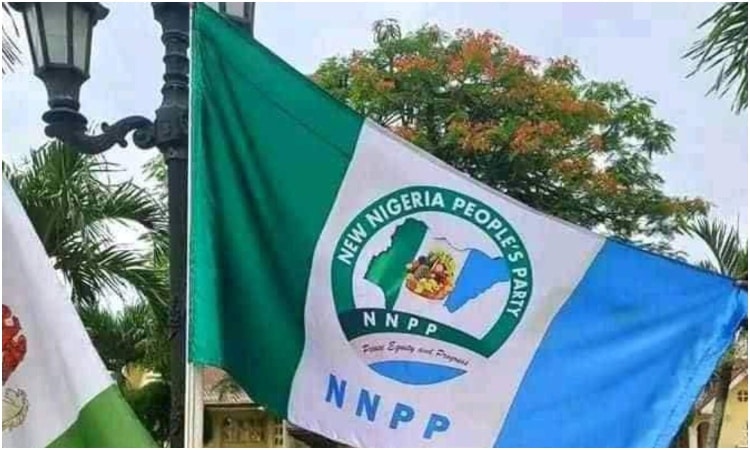ARTICLE AD
The National Agricultural Land Development Authority and the National Commission for Refugees, Migrants, and Internally Displaced Persons have signed a Memorandum of Understanding to establish farming clusters for IDPs and migrants in the country.
The partnership was signed in Abuja on Wednesday, under the Renewed Hope Restoration Project to improve the lives of IDPs and migrants in Nigeria.
The project is an initiative of NALDA and NCFRMI, designed to provide sustainable settlements for displaced communities, and will cover land areas ranging from 1,000 to 2,000 hectares in selected states, including Oyo, Katsina, Taraba, Benue, Nasarawa, Abia, and Cross River.
The project aims to create job opportunities for IDPs and migrants by integrating them into farming activities, providing them with the resources to rebuild their lives, and contributing to the nation’s food security.
Speaking at the signing ceremony, the Executive Secretary of NALDA, Cornelius Adebayo, said the partnership was a declaration by President Bola Tinubu’s administration to address the pressing challenges faced by refugees, migrants, and IDPs.
Adebayo noted that the partnership aimed to provide not just the physical space for growth but also the tools, resources, and opportunities needed to foster self-reliance and restore hope for persons of concern.
“For us, we are more than just an agency, we are a catalyst for change to achieve the Renewed Hope Agenda of Mr President.
“Our mission has always been to empower people through agriculture, and today, we are extending that mission to those who have been displaced by conflict, disaster, and hardship.
“The Renewed Hope Restoration Project will offer vocational training in modern farming techniques, provide access to land, inputs financing, equipment, and infrastructural development as well as facilitate market linkages and technical support contributing to overall food security in line with the President’s Agenda,” he said.
Adebayo said Nigeria currently has a significant population of vulnerable individuals, including refugees, asylum seekers, and IDPs.
“The NCFRMI estimates that there are approximately 2.5 million IDPs in Nigeria, mainly due to insurgency, banditry, and communal conflicts and about 35,000 Nigerian refugees in Cameroon.
“This project will help these communities transform challenges into opportunities, turning barren fields into fertile grounds for growth, prosperity, hope and breaking the cycle of dependence.
“It will also integrate refugees, migrants, and IDPs into the agricultural value chain, allowing them to contribute to the nation’s food security while also achieving economic independence,” he stated.
The Federal Commissioner and Chief Executive Officer of the NCFRMI, Tijani Ahmed, stated that the partnership ushered in a new beginning in providing sustainable durable solutions to IDPs in Nigeria.
Ahmed said the initiative was an opportunity for the commission to deliver on its mandate of providing durable solutions for IDPs, and other persons of concern in Nigeria.
He said, “With this partnership, we are on the verge of making history as well as expanding our horizon to cover more states in the country.
“With NALDA responsible for the development and provision of arable land for farming and NCFRMI with a population of about 6.4 million IDPs ready to be engaged in agricultural activities, we are confident that this collaboration will be mutually beneficial and the much-awaited agricultural revolution is about to be birthed with the signing of this MoU.
“Agriculture remains the mainstay of the nation’s economy. It is a silver bullet that contributes over 65 per cent of the nation’s Gross Domestic Product, fostering economic development, increasing local market participation, enhancing food security and nutrition, creating jobs and stimulating local economics.
“You all will agree with me that when this programme fully commences, the era of giving handouts and starter packs to IDPs by the commission will become unfashionable.
“The commission, under my leadership, deeply believes that it is better to teach a man how to catch fish than to give him fish.
“With this initiative, the commission is already implementing the National Action Plan on Durable Solutions ahead of its lunch in the coming months,” he said.
He said the initiative would help establish cluster farms to be cultivated by profiled IDPs for their economic reliability, poverty alleviation, financial empowerment and livelihood restoration.
“The about-to-be consummated partnership is at the instance of millions of displaced men, women and children who have been traumatised and affected by one driving factor of displacement or another, ranging from banditry, Boko Haram insurgency, communal mayhem, farmer-herder clash, tribal and religious clashes and climate change.
“This initiative will provide an opportunity to rebuild their lives and to become active contributors to Nigeria’s growth.
“Furthermore, I must state that this partnership is a major catalyst and a pivot around which so many displaced Nigerians will regain their livelihood in dignity,” he added.

 2 hours ago
1
2 hours ago
1 

